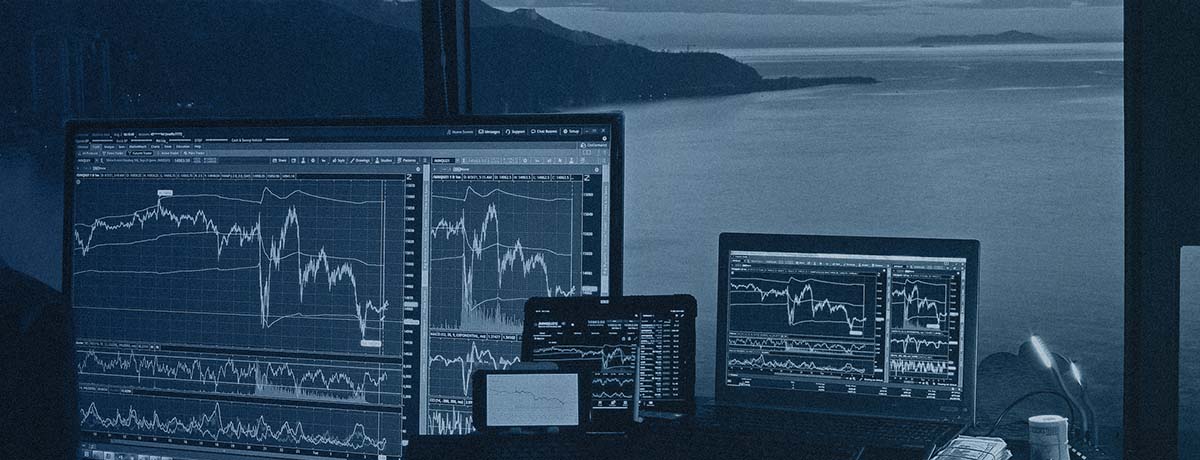
This monthly report reviews the most important cryptocurrency news in May and delves deeper into the collapse of Terra's ecosystem, the progress of banks, and El Salvador's Bitcoin-related activities.
May in the cryptocurrency market
Cryptocurrency prices were on a downward trend in May. Of the cryptocurrencies offered by Northcrypto, the prices of Bitcoin and Aave dropped by about 17 and 22 percent respectively. The prices of Ethereum, Litecoin, and Chainlink fell by around 30 percent, while the price of Polygon ended up more than 35 percent lower at the end of the month than at the beginning of the month. The price of the stablecoin USDC remained stable at $1.
Terra's collapse
The most significant event in the cryptocurrency market in May and probably the first half of the year was the collapse in the prices of the cryptocurrency Terra and stablecoin UST. Terra’s Luna token was still among the top 10 cryptocurrencies by market capitalization at the beginning of May, when its price was around €80. However, at the end of the month, the price of Luna was only about €0.0001. The price of stablecoin UST, on the other hand, was supposed to be stable at 1 US dollar, but by the end of the month, the price of UST had plummeted to around $0.03. The price collapse began when UST began to lose its $1 price, at which point the price of Luna also began to plunge downwards due to the connection between Luna and UST.
There has been a lot of discussion about the reason for the fall in the price of UST, and many felt it was a well-planned and timed economic attack. The collapse in the prices of Luna and UST was also probably the biggest factor behind the decline of the entire cryptocurrency market. The market decline was affected, for example, by The Luna Foundation Guard which sold about 80,000 bitcoin to UST after the collapse in an attempt to bring the price of UST back to $1.
Terra's developers decided to release the Terra 2.0 version and the new Luna token at the end of the month. The new token bears the name Terra (LUNA), while the old token's name changed to Terra Luna Classic (LUNC).
Banks advance in the cryptocurrency market
In May, positive news was received on the progress of several banks in the cryptocurrency market. JPMorgan, the largest bank in the United States, said cryptocurrencies had displaced real estate as the bank's primary alternative asset class. On top of that, JPMorgan sees the correct price of bitcoin at $38,000, which was about 30 percent above the price of bitcoin at the time of the estimate. In addition, another major US bank, Goldman Sachs, executed the first bitcoin-backed loan with Coinbase. Coinbase gave Goldman Sachs bitcoin as collateral and received a loan in US dollars against it.
Bank-related cryptocurrency news also appeared in Europe as Phillipp Rickenbacher, the CEO of Swiss bank Julius Baer, said that the bank plans to offer cryptocurrency products and services to its wealthiest customers. In this context, Mr. Rickenbacher also spoke about the future potential of cryptocurrencies and DeFi's potential to influence the traditional banking system. Julius Baer is a 132-year-old Swiss bank that manages nearly €500 billion in assets.
There was also positive cryptocurrency news from Japan, with two large banks reporting advances in cryptocurrency markets. Investment bank Nomura announced that it offers Bitcoin futures and options on the Chicago Mercantile Exchange in partnership with Cumberland DRW, which specializes in cryptocurrency trading. Shortly thereafter, Nomura announced the creation of a subsidiary to make cryptocurrencies, NFTs, and the possibilities of DeFi available to institutional clients. Another major Japanese bank, Sumitomo Mitsui Trust, is also setting up a new company focused on cryptocurrencies in partnership with the Japanese cryptocurrency exchange Bitbank. The purpose of the company is to provide cryptocurrency trading services to corporations as well as large investors.
Nubank, Brazil's largest digital bank, announced that it would start offering the opportunity to trade bitcoin and ether. On top of this, the bank's parent company, Nu Holdings, announced a one percent allocation of cash to bitcoin. Nubank has nearly 55 million customers in South and Central America.
El Salvador Bitcoin-related event and bitcoin purchase
El Salvador, which made bitcoin legal tender last year, made headlines for cryptocurrency news once again in May. El Salvador hosted a financial inclusion event. The event was attended by central bankers and other important financial individuals from 44 different countries, including Egypt, Kenya, and Paraguay. As an open and equal financial system for all, Bitcoin was a very integral part of the event. There were presentations related to Bitcoin and guidance on how to use the Bitcoin Lightning Network as a payment method.
In addition to the event, El Salvador purchased more bitcoin in May after its price dropped. President Nayib Bukele announced the purchase of 500 bitcoin for about €15 million. El Salvador owns about 2,300 bitcoin after its last purchase.
Summary
The most significant cryptocurrency news in May related to the collapse of Terra's ecosystem, the progress of banks, and El Salvador's Bitcoin-related activities. The collapse of Terra's ecosystem can be seen as a result of the failed stablecoin experiment, which proceeded too quickly and left the potential risks in a too small part. It is also worth noting that UST-stablecoin was an algorithmic stablecoin that differed significantly in principle from stablecoins such as USDC.
The progress made by banks around the world has been a clear trend over the course of this year and the past year. In particular, the world's largest banks cannot risk being excluded from the potential next technological megatrend when it comes to cryptocurrencies and blockchain technology. Major US banks have led the way in this respect and, more recently, several other banks from other large countries have also taken their first steps in the cryptocurrency market. The next logical step may well be the entry of banks from technologically advanced countries such as Finland.
In May, El Salvador contributed to the recognizability and usage of Bitcoin, when the country guided representatives from 44 countries on the use of Bitcoin. It is very possible that the next country to make bitcoin legal tender after El Salvador and the Central African Republic is among these countries.
Ville Viitaharju
Cryptocurrency specialist
Last updated: 10.02.2023 09:08




